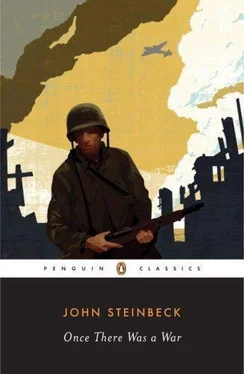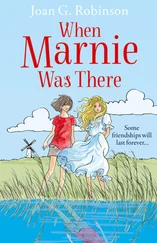John Steinbeck - Once there was a war
Здесь есть возможность читать онлайн «John Steinbeck - Once there was a war» весь текст электронной книги совершенно бесплатно (целиком полную версию без сокращений). В некоторых случаях можно слушать аудио, скачать через торрент в формате fb2 и присутствует краткое содержание. Город: New York, Год выпуска: 1960, Издательство: Bantam Books, Жанр: Классическая проза, на английском языке. Описание произведения, (предисловие) а так же отзывы посетителей доступны на портале библиотеки ЛибКат.
- Название:Once there was a war
- Автор:
- Издательство:Bantam Books
- Жанр:
- Год:1960
- Город:New York
- ISBN:нет данных
- Рейтинг книги:3 / 5. Голосов: 1
-
Избранное:Добавить в избранное
- Отзывы:
-
Ваша оценка:
- 60
- 1
- 2
- 3
- 4
- 5
Once there was a war: краткое содержание, описание и аннотация
Предлагаем к чтению аннотацию, описание, краткое содержание или предисловие (зависит от того, что написал сам автор книги «Once there was a war»). Если вы не нашли необходимую информацию о книге — напишите в комментариях, мы постараемся отыскать её.
Once there was a war — читать онлайн бесплатно полную книгу (весь текст) целиком
Ниже представлен текст книги, разбитый по страницам. Система сохранения места последней прочитанной страницы, позволяет с удобством читать онлайн бесплатно книгу «Once there was a war», без необходимости каждый раз заново искать на чём Вы остановились. Поставьте закладку, и сможете в любой момент перейти на страницу, на которой закончили чтение.
Интервал:
Закладка:
There is a great difference in the ordinary preparation of vegetables by the English and by us. The English usually boil their vegetables to a submissive, sticky pulp, in which the shape and, as some say, the flavor have long since been overcome. Our cooks do not cook their vegetables nearly so long, are apt to like them crisp. The English do not use nearly as many onions as we do and they use practically no garlic at all. The little gardens are a kind of symbol of revolt against foreign methods.
For example, the average English cook regards a vegetable with suspicion. It is his conviction that unless the vegetable is dominated and thoroughly convinced that it must offer no nonsense, it is likely to revolt or to demand dominion status. Consequently, only those vegetables are encouraged which are docile and capable of learning English ways.
The Brussels sprout is a good example of the acceptable vegetable. It is first allowed to become large and fierce. It is then picked from its stem and the daylights are boiled out of it. At the end of a few hours the little wild lump of green has disintegrated into a curious, grayish paste. It is then considered fit for consumption.
The same method is followed with cabbage. While the cabbage is boiling it is poked and beaten until, when it is served, it has given up its character and tastes exactly like brussels sprouts, which in turn taste like cabbage. Carrots are allowed to remain yellow but nothing else of their essential character is maintained.
No one has yet explained this innate fear the English suffer of a revolt of the vegetables. The easy-going American attitude of allowing the vegetable a certain amount of latitude short of the ballot is looked upon by the English as soft and degenerate. In the American gardens certain English spies have reported they have seen American soldiers pulling and eating raw carrots and turnips and onions.
It is strange to an American that the English, who love dogs and rarely eat them, nevertheless are brutal with vegetables. It is just one of those national differences which are unfathomable.
THE SHAPE OF THE WORLD
LONDON, July 16, 1943 —
This is no war, like other wars, to be won as other wars have been won. We remember the last war. It was a simple, easy thing. When we had destroyed the Kaiser and a little military clique, the evil thing was removed and all good things came into flower. It was not so, but the war was fought on that basis by troops who sang and then ran home for the millennium.
It is said that this is not a singing war and that is true. The soldiers fight and work under a load of worry. They know deeply that the destruction of the enemy is not the end of this war. And almost universally you find among the soldiers not a fear of the enemy but a fear of what is going to happen after the war. The collapse of retooled factories, the unemployment of millions due to the increase of automatic machinery, a depression that will make the last one look like a holiday.
They fight under a banner of four unimplemented freedoms — four words, and when anyone in authority tries to give these freedoms implements and methods the soldiers hear that man assaulted and dragged down. It doesn’t matter whether the methods or the plans are good or bad. Any planning is assorted at home. And the troops feel they are going to come home to one of two things — either a painless anarchy, or a system set up in their absence with the cards stacked against them.
Ours is not a naive Army. Common people have learned a great deal in the last twenty-five years, and the old magical words do not fool them any more. They do not believe the golden future made of words. They would like freedom from want. That means the little farm in Connecticut is safe from foreclosure. That means the job left when the soldier joined the Army is there waiting, and not only waiting but it will continue while the children grow up. That means there will be schools, and either savings to take care of illness in the family or medicine available without savings. Talking to many soldiers, it is the worry that comes out of them that is impressive. Is the country to be taken over by special interests through the medium of special pleaders? Is inflation to be permitted because a few people will grow rich through it? Are fortunes being made while these men get $50 a month? Will they go home to a country destroyed by greed? If anyone could assure them that these things are not true, or that, being true, they will not be permitted, then we would have a singing Army. This Army can defeat the enemy. There is no doubt about that. They know it and will accomplish it, but they do not want to go home to find a civil war in the making. The memory of the last depression is still fresh in their memories.
They remember the foreclosed farms, the slaughtered pigs to keep the prices up, the plowing under of the crops, because there was not intelligence enough in the leaders to devise a means of distributing an oversupply of food. They remember that every plan for general good life is dashed to pieces on the wall of necessary profits.
These things cannot be overstated. Anyone who can reassure these soldiers that such things will not happen again will put a weapon in their hands of incredible strength. What do the soldiers hear? — that Mr. Jones is calling Mr. Wallace names; that Mr. Jeffers is fighting with Mr. Ickes; czars of this and that are fighting for more power and more jurisdiction.
Congress, in a kind of hysteria of immunity from public criticism, has removed even the machinery of relief which might take up the impact of a new depression; black markets are flourishing and the operators are not little crooks, but the best people. The soldiers hear that the price of living is going up and wages are following them. A soldier is not a lone man. He usually has a family dependent to a large extent on the money he can allot, and his pay does not increase with the cost of living.
These are the things that he hears. The papers are full of it, the letters from home are full of it — quarreling, anxiety, greed. And, being a soldier, he cannot complain. He is forbidden to complain. You cannot have that kind of thing in an army. He is not cynical, but he is worried. He wants to get this war over with, and to get home to find what they have done to his country in his absence. The Four Freedoms define what he wants but unless some machinery, some foundation, some clear method is shown, he is likely to believe only in that freedom which Anatole France defined — the equal freedom of rich and poor to sleep under bridges.
THEATER PARTY
LONDON, July 18, 1943—
It was late afternoon of the English summer and in one of London’s innumerable outlying districts the motion-picture house was comfortably filled. There were some soldiers who had been wounded and were on their way to recovery. There were women of the services off duty for a few hours. Some civilian women were there for a quick picture after shopping and there were factory workers off shift. Down in front were rows of children, crowding as close to the screen as they could get.
It was just an average afternoon at the pictures. The house was comfortably filled but not crowded. In special places were some men in wheel chairs from the hospital. The picture was I Married a Witch with Veronica Lake — a fantasy comedy wherein a New England witch of Puritan times returns to life and falls straight into the traditional bedroom comedy — neither a distinguished piece of work nor a bad one. The children loved the picture and believed it because they believe all moving pictures.
Outside there was low cloud and it looked as though there might be rain later in the evening and there had not been enough rain.
Читать дальшеИнтервал:
Закладка:
Похожие книги на «Once there was a war»
Представляем Вашему вниманию похожие книги на «Once there was a war» списком для выбора. Мы отобрали схожую по названию и смыслу литературу в надежде предоставить читателям больше вариантов отыскать новые, интересные, ещё непрочитанные произведения.
Обсуждение, отзывы о книге «Once there was a war» и просто собственные мнения читателей. Оставьте ваши комментарии, напишите, что Вы думаете о произведении, его смысле или главных героях. Укажите что конкретно понравилось, а что нет, и почему Вы так считаете.









